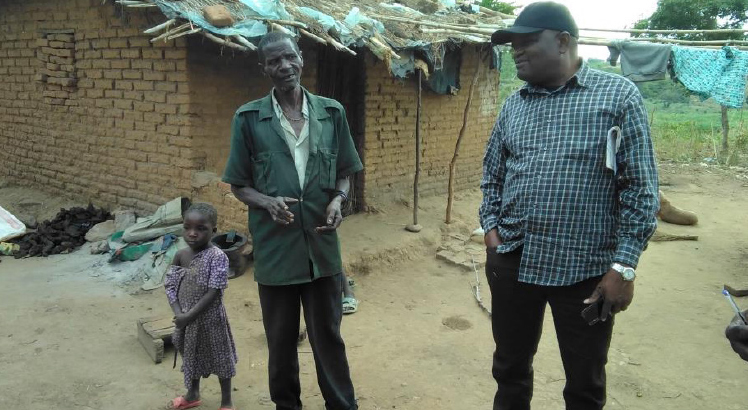The current economic meltdown has threatened the world economy as some pessimists fear that another economic recession is at hand.
Economic recessions are frequently portrayed as short-term occurrences. However, as a large body of economic literature demonstrates, the consequences of high unemployment, falling incomes and reduced economic activity can have long-term consequences.
Job loss, for example, can force families to postpone or forego sending their children to college. Frozen credit markets and low consumer spending can stifle the growth of otherwise thriving small businesses. In each of these cases, an economic recession can cause “scarring,” or long-term damage to individuals’ financial situations and the economy as a whole.
Unemployment and income loss can have a negative impact on educational achievement by jeopardising early childhood nutrition, reducing families’ ability to provide a supportive learning environment, including adequate health care, summer activities, and stable housing, and forcing college plans to be postponed or abandoned
Job and income losses caused by the recession can have long-term consequences for individuals and families. For example, the increase in poverty that will occur as a result of the recession will have long-term consequences for children and will impose long-term costs on the economy.
Prices of goods continue to rise on the market
Small businesses are facing a double bind as a result of the credit crunch and a drop in consumer demand. For example, 43 500 businesses filed for bankruptcy in the United States in 2008, up from 28 300 in 2007 and more than doubling the 19 700 filings in 2006. Only 21 active firms went public in 2008 compared to an average of 163 in the previous four years.
There is also compelling evidence that economic outcomes are passed down through generations. As a result, economic difficulties for parents will result in additional economic difficulties for their children. While it is frequently stated that deficits can result in wealth transfers from future generations of taxpayers to the present, this cost must also be weighed against the economic consequences of recessions, which are also passed on to future generations.
Recessions result in higher unemployment, lower wages and incomes, and, in general, lost opportunities. Education, private capital investments, and economic opportunity are all likely to suffer as a result of the current downturn, with long-term consequences.
While economies frequently experience rapid growth during recovery periods, as idle capacity is put back to work, the drag from long-term damage will prevent the recovery from reaching its full potential.
Many researchers have noted that education, or “human capital”, plays an important role in driving economic growth. For example, Delong, Golden, and Katz, for example, state that “human capital has played the primary role in driving America’s edge in twentieth-century economic growth.” As a result, factors that lead to fewer years of educational attainment for the nation’s youth will have long-term consequences.
Recessions can have a variety of effects on educational achievement. First, there is a substantial body of literature on the value of early childhood education. Because parental options and funding are the primary drivers of education at this level, factors that reduce families’ resources will have an impact on the level and quality of education available to their children.
Furthermore, there is evidence that early childhood nutrition impacts cognitive development. Studies in developing countries have shown that improved nutrition can lead to greater grade attainment, reading comprehension, cognitive abilities and ultimately earnings later in life. The Dahl and Lochner results also suggest that the income impact is larger for families with younger children.
In a recession—when many families face financial hardships and poverty is rising—childhood nutrition can suffer. In 2007, 13 million US households, including 12.7 million children, experienced “food insecurity” or difficulty providing enough food for all family members; 4.7 million families faced a more severe disruption in the normal diet for some members.
Second, educational achievement is determined by a number of factors outside of the school environment. For example, health services from prenatal care to dental and optometric care can eliminate barriers to educational achievement. In-school achievement and learning are also affected by after-school and summer educational activities. Forced housing dislocations—and, in the extreme, homelessness—impact educational outcomes as well. All of these influences on educational success are clearly shaped by economic downturns. The number of people without health insurance in 2018 was 46.3 million, with over seven million kids under the age of 18 uninsured.
Families struggling to get by are often forced to delay or abandon plans for continuing education.
A recent survey of young adults found that 20 percent of those aged 18–29 have left or delayed college. A survey conducted in Colorado found that a quarter of parents with children in two-year colleges had planned on sending their kids to four-year institutions before the recession.
This delay or reduction in college attendance is costly. Not only does college attendance yield higher earnings, lower unemployment, and other benefits to the individual, but it also conveys myriad social benefits as well, including better health outcomes, lower incarceration rates, greater volunteerism rates, etc.
It is also important to note that the increased educational struggles for many kids and young adults will have lasting effects. Not only does increased educational success lead to higher wages and incomes for individuals and their families down the road, but it also leads to a greater likelihood of educational achievement for their offspring.
Simply put, poverty is not good for the economy. When children grow up in poverty, they are more likely, later in life, to have low earnings, commit crimes and have poor health. Holtzer et al. estimate the cumulative cost of childhood poverty to the economy to be about $500 billion per year, or about four percent of GDP. There is significant evidence that poverty has lasting consequences for kids, including educational achievement, cognitive development and emotional and behavioural outcomes. As noted above, family income can be expected to impact educational attainment in various ways, but falling incomes and higher poverty levels also impact adults’ opportunities as well.
Wealth also shapes economic opportunities, acting as a lifeline during difficult times (such as a recession) and can fund additional education, retraining, or the startup costs of a new business. Unfortunately, a large portion of the country is impoverished: in 2004, approximately 30 percent of households had a net worth of less than $12 000. This problem is exacerbated for certain populations: the median financial wealth for blacks in 2004 was $300, which included liquid and semi-liquid assets such as mutual funds, trusts, and bank account holdings.
Poorer families can lead to fewer opportunities and worse economic outcomes for their children through a variety of mechanisms—be it through nutrition, educational attainment, or access to wealth. A recession, therefore, should not be thought of as a one-time event that stresses individuals and families for a couple of years. Rather, economic downturns will impact the future prospects of all family members, including children, and will have consequences for years to come.
A variety of findings indicate that economic outcomes, particularly one’s position in the income and wealth distribution, are frequently carried over from one generation to the next. More directly related to job loss, examines labor market earnings of children whose fathers lost their jobs. Not only did the job loss result in a long-term loss of family income, but the next generation earned nine percent less than similar children whose father did not experience unemployment. African countries need to start learning from every economic meltdown to ensure that their people don’t carry the burden of the economic recession.
___________________
*Donasius Pathera is a PhD holder in economics with research interests in agriculture economics, political economy and public finance management
The post Economic recession and multidimensional poverty appeared first on The Nation Online.
 Moni Malawi
Moni Malawi 
